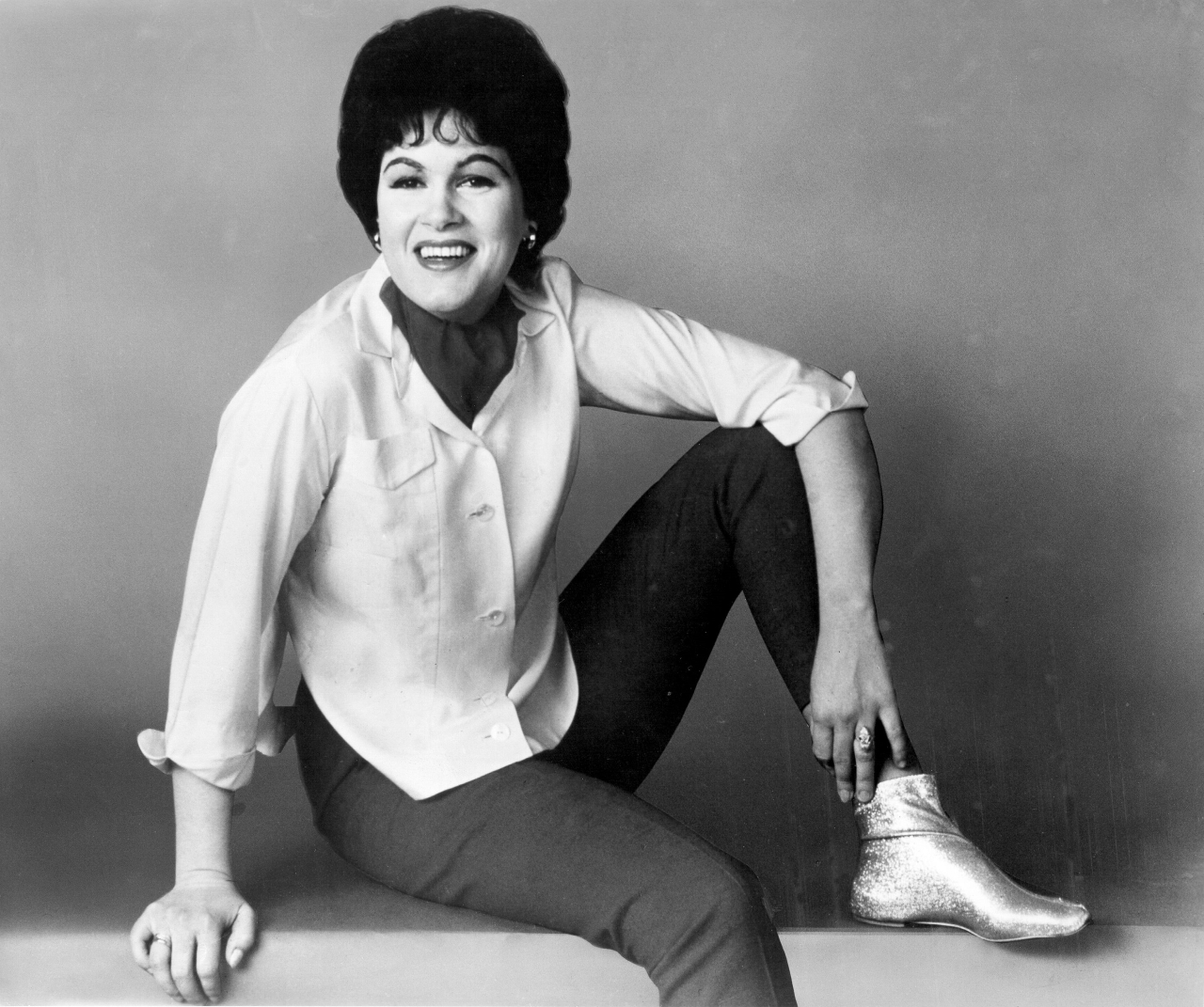🌾 A CHILDHOOD IN POVERTY
Patsy Cline was born Virginia Patterson Hensley on September 8, 1932, in the small town of Winchester, Virginia. Life wasn’t easy from the start. Her father, a blacksmith, left when she was a teenager, leaving Patsy, her mother, and younger siblings to survive on almost nothing. They lived in a cramped house with no money for luxuries, sometimes not even for proper meals. Yet even in poverty, Patsy discovered a treasure inside her: a voice powerful enough to command attention wherever she sang. She belted out songs in the local church choir and performed in amateur contests, often barefoot, because she couldn’t afford shoes.
She dreamed not of escaping poverty, but of transforming her voice into something that could lift her entire family out of it. Music wasn’t a hobby for Patsy — it was survival.

🎤 THE LITTLE GIRL WHO WOULD NOT BE IGNORED
By her teenage years, Patsy was performing on local radio stations around Winchester. The DJs were stunned by the maturity of her voice. It wasn’t polished, but it was raw, filled with fire and heartbreak far beyond her years. Her mother, who worked as a seamstress, stitched Patsy’s stage outfits from leftover fabric scraps so she could look like a professional performer.
Winchester locals began whispering: “That girl’s going to make it to the Opry one day.” Patsy believed them. She had no money, no connections, no path — but she had a dream, and it burned inside her with every song she sang.
🚪 THE FIRST HARD KNOCKS IN NASHVILLE
In 1948, at just 16, Patsy hitchhiked to Washington, D.C., to audition for local country bands. She began singing in smoky honky-tonks, where drunk men shouted requests over her voice. But Patsy never let herself be pushed aside. She sang louder, stronger, forcing even the noisiest rooms to fall silent.
By the early 1950s, she landed her first record deal with Four Star Records. But the contract was brutal — the company controlled her song choices, often giving her material unworthy of her talent. Her first singles flopped. Many critics dismissed her as “another pretty face who sings too hard.” For a moment, it seemed Patsy’s dream was slipping away.
✨ THE BREAKTHROUGH: WALKING AFTER MIDNIGHT
Everything changed in 1957. Patsy appeared on Arthur Godfrey’s Talent Scouts, a popular TV show. Wearing a handmade fringed dress from her mother, she performed Walking After Midnight. The song wasn’t supposed to be her choice, but she fought for it.
When she opened her mouth, millions of viewers across America stopped what they were doing. Patsy’s voice was rich, haunting, filled with longing. The next day, Walking After Midnight shot to the top of the country charts and crossed over into the pop charts — a rare feat for a female country artist at the time.
In one night, Patsy Cline became a household name. But her journey had only just begun.
💔 HARDSHIPS, ACCIDENTS, AND COMEBACKS
Fame didn’t erase struggle. In 1961, Patsy was nearly killed in a horrific car crash. She spent months in the hospital with broken ribs and a shattered body. Doctors doubted she would ever sing again. But Patsy’s resilience was unmatched. She returned to the studio with even greater emotional depth in her voice. That same year, she recorded I Fall to Pieces and, of course, Crazy. Both songs became massive hits.
Instead of weakness, Patsy’s pain gave her strength. Fans didn’t just admire her voice — they admired her courage.
👑 A WOMAN IN A MAN’S WORLD
The country music industry of the 1950s and ’60s was dominated by men. Female artists were expected to sing light, sweet songs, never too bold, never too raw. Patsy shattered those expectations. She sang songs of heartbreak, loneliness, and desire with a power that demanded respect.
On stage, she wore western fringes and sequins, but her presence was commanding. Off stage, she was outspoken, witty, and unafraid to stand up for herself. She often told male colleagues, “I can stand toe-to-toe with you, and I’ll out-sing you any day.” And she did.
🌟 THE FIRST FEMALE ICON IN THE COUNTRY HALL OF FAME
Tragically, Patsy’s life was cut short in 1963 when a plane crash claimed her life at just 30 years old. But her legacy only grew stronger with time. In 1973, she became the first woman ever inducted into the Country Music Hall of Fame. That honor wasn’t just about her songs — it was about what she represented: resilience, courage, and a refusal to be silenced in a world that often tried to keep women small.
From a barefoot girl in Winchester to the greatest female voice in country music, Patsy Cline had carved a path for every woman who came after her — Loretta Lynn, Dolly Parton, Reba McEntire, and countless more.
🎶 A LEGACY THAT STILL ECHOES
Today, Patsy’s voice still fills jukeboxes, radios, and playlists. Young singers still cover Crazy and I Fall to Pieces. Fans still visit her hometown of Winchester, where a humble museum preserves her dresses and letters.
But perhaps the most enduring legacy is how Patsy proved that greatness doesn’t come from privilege. It comes from grit, from fighting back when the world tries to keep you down. She didn’t just open doors for women in country music — she kicked them down and walked through with her head held high.